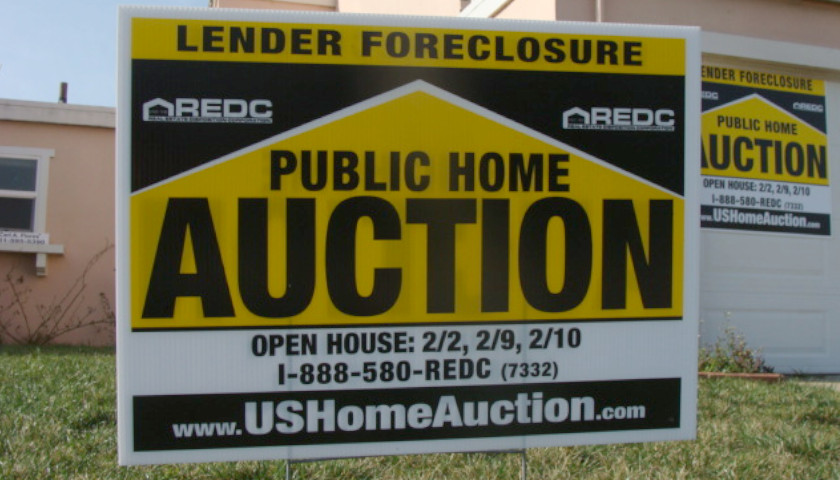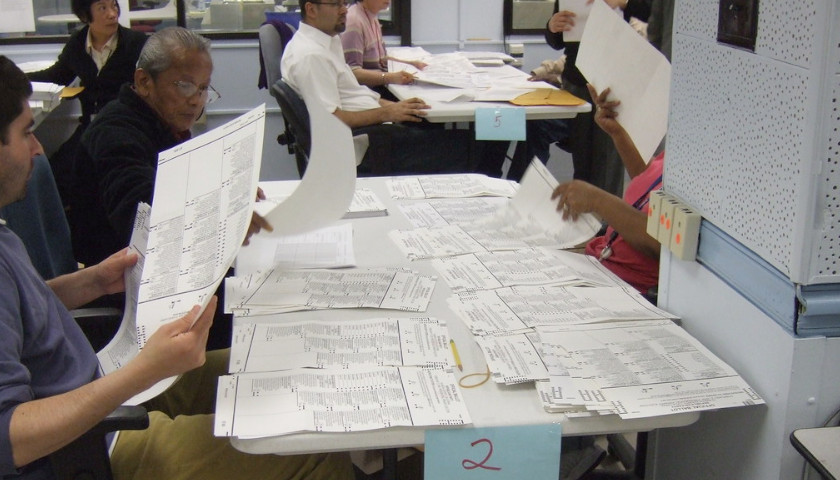The Pacific Legal Foundation (PLF) released a comprehensive report Tuesday detailing that 12 states, plus Washington D.C., have laws in place that allow for home equity theft, including Arizona.
“Our findings are alarming,” said Angela Erickson, strategic research director at PLF. “Home equity theft is robbing thousands of people of their homes and all the equity they’ve built.”
As described by the PLF, home equity theft occurs when a person, either deliberately or mistakenly, has not fully paid their property taxes, but instead of just taking what it is owed, the government or an investor takes the entire house and all of its equity. These unpaid taxes can be any size, from thousands of dollars to trivial amounts worth less than a fraction of the house.
In Arizona, the process involves an auction. When taxes go unpaid, county governments will auction off that due amount as a tax lien certificate. Private investors can bid for the certificate, not through money, but by bidding using interest. An investor can receive up to 16 percent interest per annum on the certificate charged to the homeowner. Under Arizona law, the investor who gets the certificate is the one who “pays the whole amount of delinquent taxes, interest, penalties, and charges due on the property” and offers to take the lowest interest rate on the amount paid. If no qualified bidders take the lien, it is transferred to the state, which can later sell the property to the highest bidder if it is not paid off.
David Deerson, an attorney with the PLF, told The Arizona Sun Times via email that once the investor achieves the lien certificate, the owner has three years to pay back the investor, plus interest. While Arizona law requires the owner receives a notice of a pending delinquent tax and their property is subject to a lien sale, the lien purchaser is not required to notify the property owner that they have the lien until the three years are up and the investor is ready to foreclose.
Deerson further explained that if the lien goes unpaid in those three years, the action to foreclose can begin. If the investor wins the case, they still need to apply for a deed with the county Treasurer to get the property. At any point during this process, the property owner can still act. They can either pay off the total debt paid by the investor plus interest or challenge the foreclosure suit in court.
Jim Hogan of the Hogan School of Real Estate stated that only one to two percent of tax liens sold result in the investor getting the property. Often, bidders acquire certificates to get the interest rate on the invested amount.
However, the PLF’s report found that between 2014 and 2019, 5,600 homes were taken using this method, resulting in owners losing a combined $777 million in equity during that time. Of those homes, 117 were in Arizona, and the PLF stated that investors pocketed roughly ten million dollars after paying the lien. In one extreme example, an investment LLC got a tax lien for a South Phoenix house for $50, then foreclosed and sold the property for over $40,000.
Erickson told The Sun Times via the phone that the best way for Arizonans to prevent home equity theft from occurring is through legislative measures. In 2020, House Bill 2445 was introduced to prevent anyone from losing more than they owed in taxes, but it ultimately failed to pass. Erickson said locals should contact their Legislators and request a similar bill be introduced in the future to see this practice go away.
– – –
Neil Jones is a reporter for The Arizona Sun Times and The Star News Network. Follow Neil on Twitter. Email tips to [email protected].
Photo “Home Foreclosure” by Brendel. CC BY-SA 3.0.





